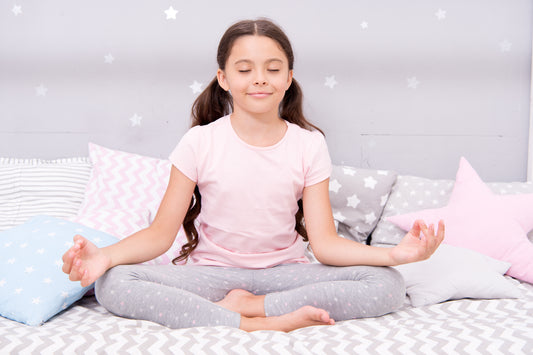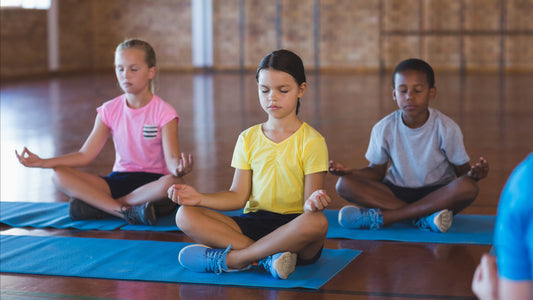In the whirlwind of childhood, where school, social interactions, and extracurricular activities often dominate the daily schedule, finding moments of tranquility can be a challenge. Yet, amidst the hustle and bustle, the importance of fostering inner peace and emotional well-being in our children remains paramount. Meditation, an ancient practice rooted in mindfulness and self-awareness, has emerged as a powerful tool for both adults and children, offering a pathway to cultivate calm and enhance emotional regulation. But how often should kids meditate?
The Ideal Frequency for Young Meditators
The ideal frequency for meditation varies depending on the child's age, temperament, and preferences. While there is no one-size-fits-all approach, general guidelines can provide a starting point for parents embarking on their child's meditation journey.
Preschoolers (Ages 3-5)
For preschoolers, even short meditation sessions of a few minutes can be beneficial. Incorporate meditation into their daily routine, perhaps after nap time or before bedtime. Engage them with playful techniques, such as guided visualizations or interactive games, to make meditation a fun and enjoyable experience. To learn more about the importance of meditation for kids, visit our blog.
School-Aged Children (Ages 6-12)
As children progress through school, their attention span and understanding of meditation deepen. Aim for meditation sessions of 5-10 minutes, ideally twice a day, once in the morning to set a positive tone for the day and again in the evening to promote relaxation before sleep.
Teenagers (Ages 13-18)
Teenagers, with their evolving emotions and heightened self-awareness, may benefit from longer meditation sessions of 10-20 minutes. Encourage them to incorporate meditation into their daily routine as a personal practice for self-discovery and stress management. To learn more visit: 10 Reasons your Teenager should be Meditating
Key Considerations for Meditation Frequency
- Consistency: Regularity is key to reaping the full benefits of meditation. Encourage your child to make meditation a consistent part of their daily or weekly routine, even if it's just for a few minutes each time.
- Flexibility: Adapt the frequency and duration of meditation sessions to suit your child's individual needs and preferences. Be patient and understanding as they explore what works best for them.
- Enjoyment: Make meditation a fun and enjoyable experience to foster engagement and motivation. Encourage your child to express their preferences in terms of meditation techniques, settings, and timings.
Benefits of Regular Meditation for Kids
- Improved Emotional Regulation: Meditation helps children manage stress, anxiety, and anger effectively.
- Enhanced Focus and Attention: Meditation cultivates concentration and improves focus in daily activities.
- Increased Self-Awareness: Meditation promotes self-understanding and emotional literacy.
- Promotes Sleep Quality: Meditation can help children relax and fall asleep more easily.
- Boosts Self-Esteem: Meditation fosters self-acceptance and a positive self-image.
Nurturing a Meditation Habit
As parents, we play a crucial role in nurturing a love for meditation in our children. Here are some tips to encourage regular practice:
- Set the Example: Children often emulate their parents. Incorporate meditation into your own routine to demonstrate its value and set a positive example.
- Create a Meditation Space: Designate a quiet and comfortable space where your child can meditate without distractions.
- Explore Different Techniques: Experiment with various meditation techniques, such as guided visualizations, mindfulness exercises, or yoga, to find what resonates with your child.
- Make it Fun: Incorporate playful elements into meditation sessions to keep your child engaged and motivated.
- Celebrate Progress: Acknowledge and celebrate your child's progress, no matter how small, to reinforce their efforts and foster a sense of accomplishment.
Remember, meditation is a journey, not a destination. Each child's path to mindfulness will be unique. By providing a supportive and encouraging environment, we can empower our children to discover the transformative power of meditation and cultivate inner peace that will serve them well throughout their lives.
For more information on mindfulness and meditation for kids, visit our blog
And to learn more about our award winning meditation kit for kids visit: www.meditatingkids.com




